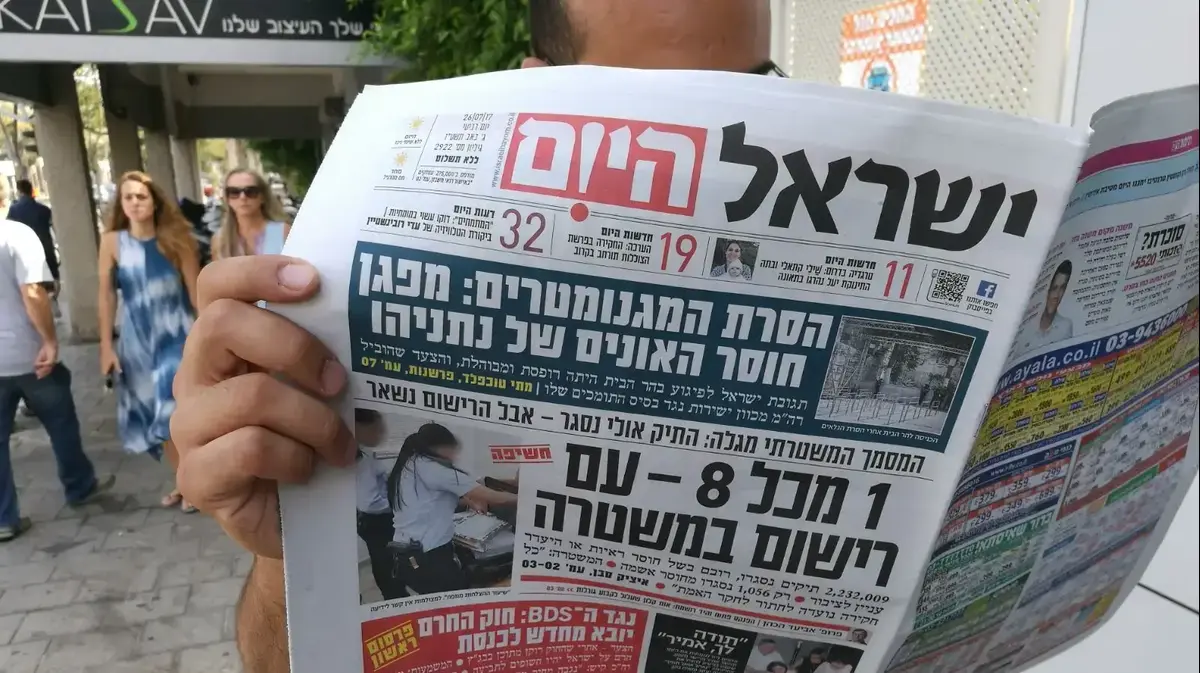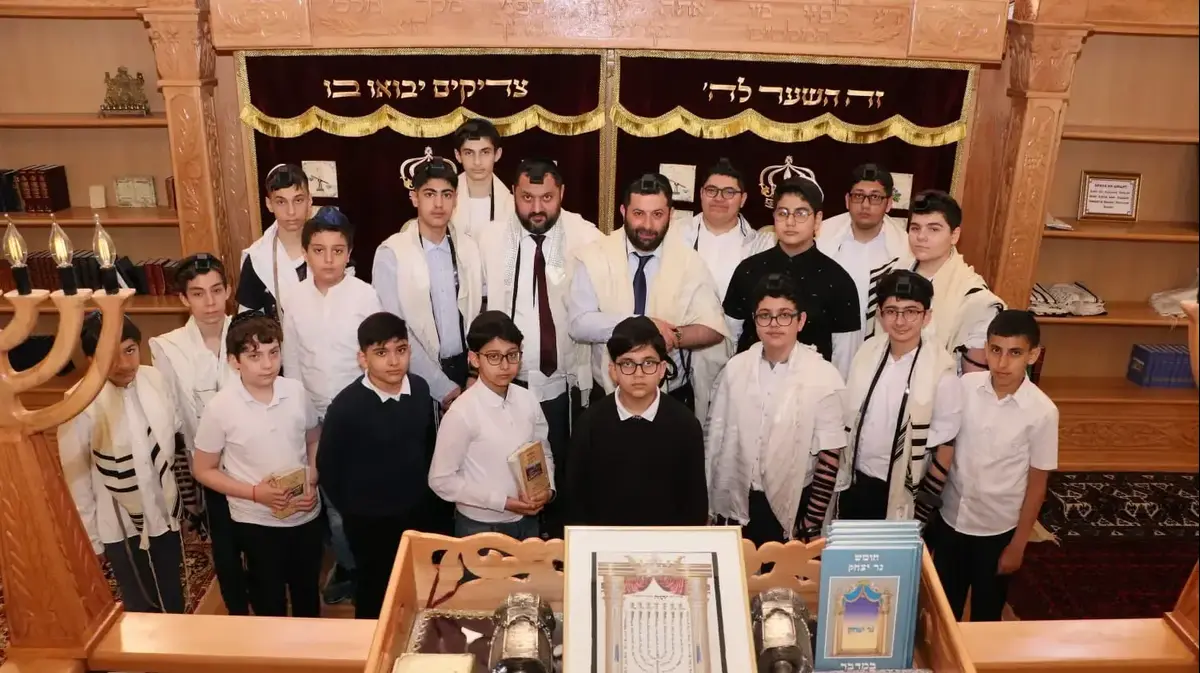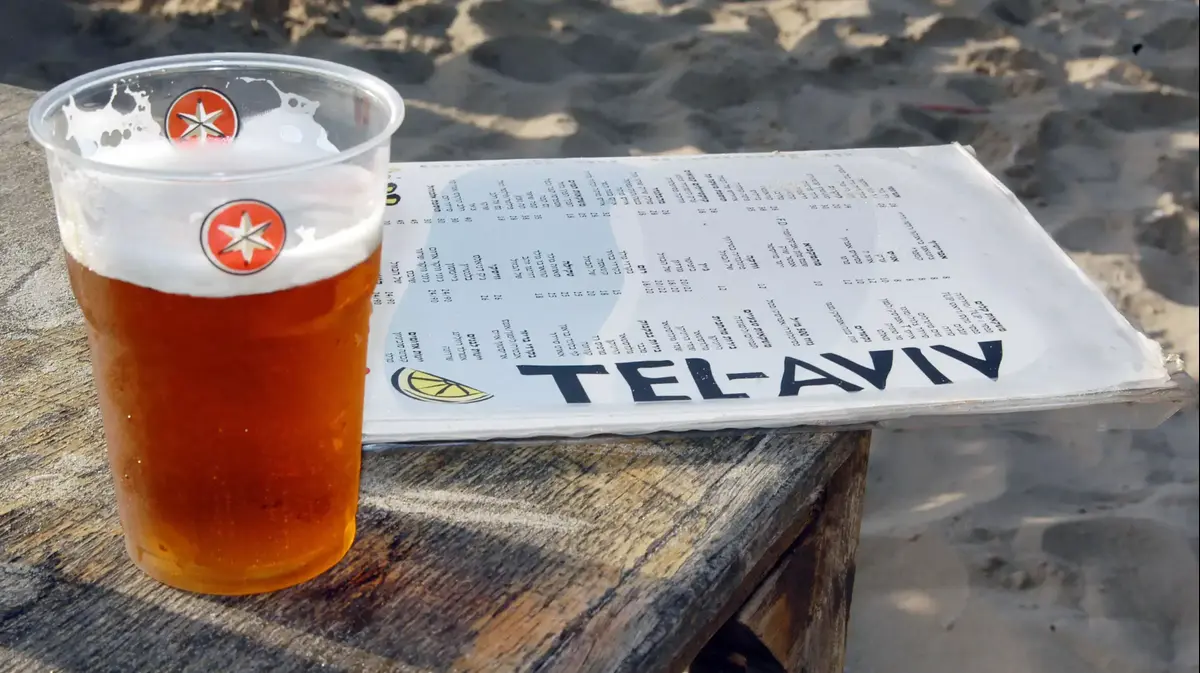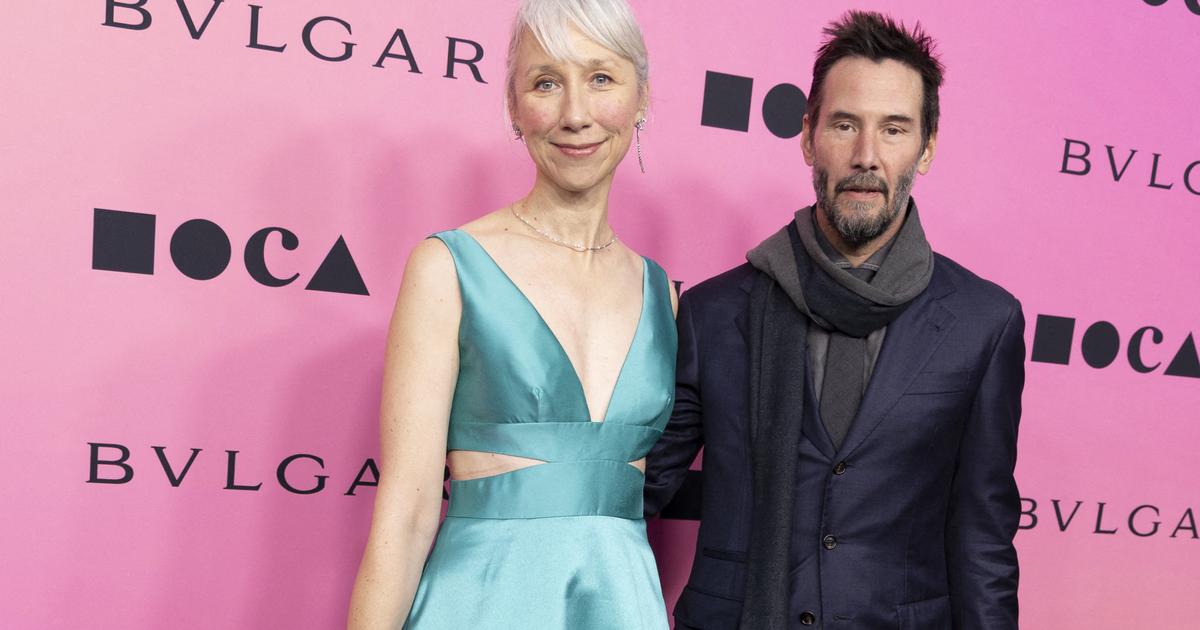Monday 14.3, Bucharest, Romania.
On the large double bed in a room at the Mykontinental Hotel in Bucharest lies Carolina Cherkeshchenko.
A light-eyed baby, a sparse strand of hair protruding through a pink hat.
She was born on February 18, just days before the start of the Russian offensive in Ukraine, and she and her family have been on the run ever since.
For almost a month she has been wrapped in the arms of her 19-year-old mother, Diana, moving out of her homeland.
Her mother, aunts and grandmothers seek refuge for her and them, hoping to provide everyone with a better future.
When Michal Steinman, a senior nurse who coordinates professional development in nursing and supervisor at the Beilinson Hospital in Petah Tikva, and Dr. Dror Dicker, director of boarding school D at the Sharon Hospital, enter the hotel room, Carolina does not cry. Maybe she also understands that here, Israel came to help her.
The two look at the Ukrainian baby, and their hearts are broken.
As members of the Beilinson and Sharon relief delegation from the Clalit Group, they have been moving to the Jewish Agency's absorption centers in Bucharest, the capital of Romania, for several days, caring for immigrants and refugees destined to immigrate to Israel.
Dozens of Ukrainian citizens who fled the inferno, hoping to immigrate to Israel, are war refugees whose warm clothing also fails to melt their frozen eyes.
But Michal and Dr. Dicker do not forget the sight they saw in the same room in a hotel in Romania. R. Dicker.
"We tried to contact the mother through the interpreter, and she did not answer. Then an older woman came in, followed by two other little girls who were clearly unaware of the difficult situation they had come from. It seemed surreal, such a large bunch of lost women."
A few minutes later, with a fluency in Ukrainian with the help of an interpreter, the picture began to clear up.
The mother, Natasha (46), a patient with advanced metastatic breast cancer, left her home a few days after the war began.
She took with her her three daughters, Diana, Yelena (12) and Senigne (10), and her new granddaughter - Carolina.
Five members of the family, three generations, who at the most sensitive moment in their lives won the hearts of the Israeli staff.
"When we entered it was quiet, but when Natasha started to tell what had happened to them, she started to cry," Michal is excited.
"It was a hallucinatory situation where Natasha cried, Diana who saw her started crying on her own, followed by the baby, and Dr. Dicker held Natasha's hand and comforted her.
Diana said she loves chocolate, and the next day we went to a chocolate shop and filled a box with all the goodies.
We knew we wanted to do everything we could for them.
"We realized we needed to give that extra mile, to do the pure thing we came for. We realized this was a different case. In other cases we saw, we realized there was some kind of wire, thick or thin, that the refugees could hold on to. A distant niece in the country, friends who did not immigrate "Here, at least in the initial stage, these were five detached figures, who, beyond the status of non-belonging, are dealing with a medical condition that cannot be postponed."
The staff members understood that Natasha and Diana had already lived in Israel for two years in the past, and were therefore not eligible for assistance from new immigrants.
After weeks in the country they have been recognized as returning residents, but they are still waiting to receive an identity card and assistance.
The Israelis realized that they had nowhere to stay or their own equipment, and decided to enlist their help.
In addition, Beilinson submitted a request to approve Natasha's son to immigrate to Israel.
With the help of Dr. Eitan Wertheim, director of the Rabin Medical Center (Beilinson and Hasharon), Dr. Eran Rotman, director of Beilinson, and the Friends of the Hospital Association, they found free housing in the nursing students' residences, and began to provide donations as well.
"Therefore, there will be somewhere to go in Israel," promised Natasha, who for her part does not stop thanking her Israeli rescuers.
Five daughters, three generations, a family torn from its roots and all its loved ones, who in one moment get a new chance at life.
Dr. Rotman and Sister Katya (holding baby Carolina) welcome Diana to Israel, in March Photo: Yossi Zeliger, Photography: Yossi Zeliger
Wednesday, March 23, Petah Tikva, Israel
One week after landing here on a flight from Bucharest (March 18), the girls of the Cherkeshchenko family begin to acclimatize in Israel.
The little girls Yelena and Snigena watch YouTube songs in Ukrainian.
They brought the cell phone from abroad, the SIM card the staff bought for them. They are dressed in festive dresses, their hair is combed and tidy. Diana's face is lightly made up, her nails are painted red. Every hint of normalcy does them good on the heart.
From the moment they landed in Israel, the staff at the hospital took care of all their shortages.
Michal waited for them with Dr. Rotman at Ben Gurion Airport, and made sure to bring them directly to the apartment next to the hospital.
After landing, Diana and Carolina underwent extensive postpartum tests.
In baby Carolina, Schneider's doctors discovered malnutrition, which stemmed from the journey she had to embark on in the first days of her life.
She received treatment, and she and her mother were released to their new residence.
Now they are here, sharing two housing units in a long building in front of the hospital.
Each unit has a large bed and sofa, TV and basic cooking equipment in the kitchenette.
Natasha, Diana and baby Carolina sleep in one unit, where a wooden crib has been placed in the corner of the room.
Now a folded blue blanket rests on the crib, and next to it a baby stroller with a red cover they received in donation.
On the counter in the kitchenette is a large box of Materna.
The second, adjoining unit belongs to the two young girls, though these are almost always in the room of an artist and their sister.
Michal's phone keeps ringing.
The messages in the WhatsApp group “Hugging Carolina,” which she opened with the nurses at the hospital for the benefit of the family, keep flowing.
One collected clothes for them, the other makes them pasta in tomato sauce, the third wants to go out with them to the park.
As nurses in the hospital, their agenda is busy.
Anna Kaufman, for example, is a deputy nurse in charge of the general intensive care unit.
Katya Kuriel is a nurse in intensive care.
Alona Gerchikov - Nurse in the recovery unit.
Katya Druckman is a nurse in B-Breast Surgery and a nursing teacher, and Doreen Shamir is a social worker in the intensive care unit.
And despite the crowded schedule, each of them made time for the family and sponsored them.
"The day before they arrived, I started a WhatsApp group of nurses in charge of the hospital and asked for help," says Michal.
"Within minutes I had volunteers to translate, care for and collect equipment for them. Two nurses took the keys to the apartments to see what was there, and asked to complete everything needed. The hospital also came to the rescue and brought bedding, utensils, even a washing machine. Everyone. Fill the fridge with dairy products and food, bring donated clothing, blankets, baby gear, everything so they have how to get through the weekend in this apartment, and this whole period in general.
"We do everything we can to give them, at least in the beginning, a sense of home. After all, they came with almost nothing. In their first days here there was a winter storm, and Natasha came to me and said she was thinking of going to the market - but could not go out because of the rain. Suddenly. "I realized that she does not even have an umbrella. It was important to me to buy one for her, because I want her and the girls to go around. They will take responsibility. They will see a normal life. There is a very important and normal survival statement in that."
Natasha: "I feel very good in the country, and I hope we can stay and continue our lives here. I may die of my illness, and it is important to me that the girls stay together. I do not want to be a burden to anyone, and I am ashamed to ask alms and help from people."
Natasha looks at Michal with tears glistening with tears.
As she recounts her personal story, translated by Alona and Katia Kuriel, the heart contracts.
She comes from Alexeyevka, a small village in the area of the city of Dnipro in central Ukraine.
As an agricultural worker, she grew fruits and vegetables in the family farm, which she sold.
Near the house, she recalls with a smile, there is a lake with fish, where they would go fishing to make a fish meal.
She and her husband divorced in 2019, and she was left to take care of her childhood alone.
Diana, who was not married, barely kept in touch with Carolina's father.
She gave birth to her on February 18, by caesarean section, four days before he tried her hand at the terror of the Russian offensive.
"When the war started, they started bombing the airport and also gas stations near our village," Natasha rubs her hands vigorously against each other, until they blush in pain.
"We started hearing about Jewish aid organizations such as Chabad and the JDC, which organize buses to the border.
"Even before the war started, I thought of returning to Israel with the children, but the thought was delayed and delayed, and then the war came and it was clear to me that we were leaving."
Natasha reveals that her son, Valery, was forced to stay in Ukraine on the orders of the authorities, who are not currently allowing men to leave the country.
"Beyond the fact that he is 22 years old and he is not allowed to go out, he is the primary caregiver for his grandmother, my husband's mother, who is in a nursing home situation. "My heart is torn from longing and worry. I hope we can find a lawyer who will make him the grandmother's guardian, and then we can bring her to Israel as well, even though she is a nurse and needs to be in a hospital."
On the run, Natasha took a small bag with her and packed mostly documents, some warm clothes, diapers and some baby food.
"We rented a car with a driver to get to the nearby big city, and after four days of driving we crossed the Romanian border, where we boarded Jewish Agency buses - and drove seven hours to the capital Bucharest."
Katya with Carolina.
Translated the conversations, Photo: Yossi Zeliger
"Super moral help"
Four grueling days rocked the roads.
Four days of uncertainty and worry, followed by nearly three weeks of nerve-wracking waiting.
First in a refugee camp on the Romanian border, where they were located by the Jewish Agency as destined to arrive in Israel, and later in a hotel assigned to them by the agency to stay overnight, until they were flown to Israel.
Due to her medical condition, Natasha needed help.
In 2019, Natasha was diagnosed with metastatic breast cancer.
Doctors in Ukraine have announced that she has a few months to live.
There, she explains, it takes a lot of money to get good care in a hospital, and due to her financial problems she received almost no treatment, except for drugs given to her by injection in the abdomen, to relieve the bone pain apparently caused by the metastases.
"When I found out I was sick, I had to pay a very high amount for surgery. I could not get the money, so I did not get the surgery I needed. They gave me all kinds of alternative treatments, which to this day I do not really know if and how much they helped at all.
"Half a year ago I felt very unwell, and the doctors told me to prepare myself and the children so that I might not get out of it. "I knew I had to be strong for them, that my first grandchild was about to be born, and that I wanted to help her."
It is the desire to live for childhood that holds Natasha even today.
Already when she met the Israeli team in Romania, she explained to them about her medical condition.
Dr. Dicker, who also serves as president of the European Federation of Internal Medicine, sent her for a CT scan of a head at the University Hospital in Bucharest, with which he is in good contact, to make sure the flight to Israel would not endanger her life.
Now he takes care of them in Israel as well, in the place of the insurers where they are already beginning to adapt.
"We have helped a lot of refugees along the way, and we will help without a few others," he says in a soft tone.
"But here there is a sense of desire to close the circle, after first meeting them there, and there is the mobilization of so many people in their favor, with non-medical help only - and it warms the heart.
"In general, in this situation you see the mutual guarantee and the greatness of the human race. From the first moment we announced that we were harnessing for the benefit of the refugees, we had a long list of crew members who also wanted to fly. It was hard work, physically and mentally. "But people still wanted to fly and help. This is the beautiful side of Israeliness."
Dr. Rothman is also connected to the family. "I see this help as a moral writer, on a level that anyone who can do an act - must be a part of it, he says.
"Although we were in the areas of the Jewish Agency, we took care of everyone, even those who are not eligible to immigrate to Israel. As part of this help, we try to solve personal problems of some people, such as the Cherkhashenko family.
"Their story touched our hearts, so we enlisted the Friends Association to find them a solution, even if temporary, so that they could land in the country and get a roof over their heads, rather than look for themselves at the airport. A medical and humanitarian response was needed, and we do what we can to help "In general, the hospital's Friends Association is doing an amazing job of raising donations for refugees from Ukraine, and we have made a decision to help even the uninsured or the underprivileged."
The sisters hug the daughters of the family, who are trying to reassemble the disassembled puzzle of their lives.
Take them out to freshen up, take care of any shortages.
The girls managed, among other things, to go to a movie and visit a safari in Ramat Gan.
Nurse Michal Lebenstein, who works as an animal therapist, occasionally comes with a hospital treatment dog, and the girls treat and play with him, as part of their mental aspect.
Natasha: "After they bombed the airport near our village, we heard that Jewish aid organizations, Chabad and the JDC, are organizing buses to the border.
Even before the war, I thought of returning to Israel with the children, but then the bombings came and it was clear to me that we were leaving. "
"We try to provide them with a bridge to life," Michal points out.
"The goal is to give them a basic livelihood here, so that we can pass them on to the next factor and wrap them in what can be wrapped up - until we can release. It's a win-win situation, and I think when we do that, it's very empowering."
On their first Saturday in the country, the girls of the family wanted to freshen up a bit and went out to the nearby mall unaccompanied.
But suddenly, for no apparent reason, Carolina choked and turned blue.
They panicked and shouted, and people who were near them began to perform CPR on the baby.
Alona, who happened to be there, arrived when Carolina was already fine.
"They were very frightened. They did not know who to turn to. I contacted Michal, who instructed them to go to Schneider, where they examined the baby again."
Sunday, 12.6, Student Residence
Three months after landing in Israel, the girls of the family already define Israel as "home."
The young girls, Yelena and Snigena, began attending an elementary school in Petah Tikva.
They do not stop laughing as they practice the dance for the class graduation party, and finally enjoy playing with girls their age.
Twice a week they go to the studio, learn Hebrew, and they already know how to say whole sentences, greet the nurses with "hello" and "thank you."
A month and a half ago, their son Valery also joined them.
Although he was of conscription age in Ukraine, the staff was assisted by the embassies of Ukraine and Poland, and managed to bring him to Israel as well, to the student dormitories in Beilinson.
When he came here, he started working in a mall in Petah Tikva, cleaning.
Now the staff is trying to get him to study in the studio and get a neat job.
The civil status of Diana and Natasha, which was not clear when they arrived in Israel, was recently settled, and they even received membership in a general health fund.
Fifteen years ago, the two lived in Israel, in Arad, with Diana's Jewish father.
Both had Israeli citizenship, and therefore did not receive assistance from the Jewish Agency in advance.
When they got here, they had to wait long weeks to get the required certificates.
In contrast, the civil status of Natasha's two young daughters has not yet been settled.
They are entitled to stay in Israel under the Law of Return, since their father is Jewish, but now the Interior Ministry is waiting for their father to sign a document at the embassy in Kiev, and this is delayed due to the fighting in the country.
The status of granddaughter Carolina has not yet been settled.
As the daughter of an Israeli citizen, she is entitled to immigrate to Israel.
But in time of war, and due to the complex attribution, the approvals are delayed, and with them are delayed the concessions she deserves, as well as the HMO membership.
Natasha, who is undergoing biological treatments that are supposed to improve her quality of life, leans back in her chair.
The treatments tire her out, weaken her, but she maintains her strength for the sake of her family.
She lifts her shoulders, places her palms on her eyes, trying to stop the tears.
"I can not even find the right words to thank you for that," she addresses the women of the team.
Then she adds to Michal, Alona and Katia: "I know you have your own life to take care of. I'm very good in the country, and I hope we can stay and continue our lives here. I want my daughters to go to school here, that Diana can learn something that interests her, to start To work, that we may live.
Dr. Dicker: “In this situation one sees the mutual guarantee and the greatness of the human race.
We had a long list of crew members who also wanted to fly.
It was hard work, and many of us came back from there with Corona, but people still wanted to help.
This is the beautiful side of Israeliness "
"I do not really know what my medical condition is. I may die tomorrow from the disease, and it is important to me that the girls stay together and that Diana gets guardianship over the young girls and can take care of them.
"I wish people would understand that one should appreciate each other every day. To love each other. I do not know where I would be today without the support I get here from these good people around me. I hear about the destruction going on in Ukraine, children sleeping in basements, families not surviving, "
batchene@gmail.com
Were we wrong?
Fixed!
If you found an error in the article, we'll be happy for you to share it with us

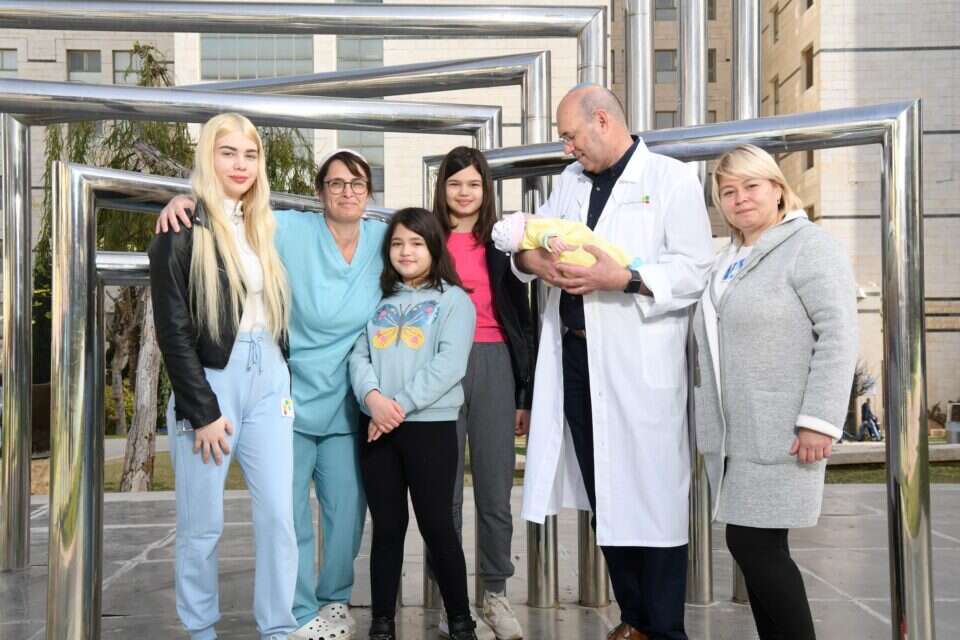
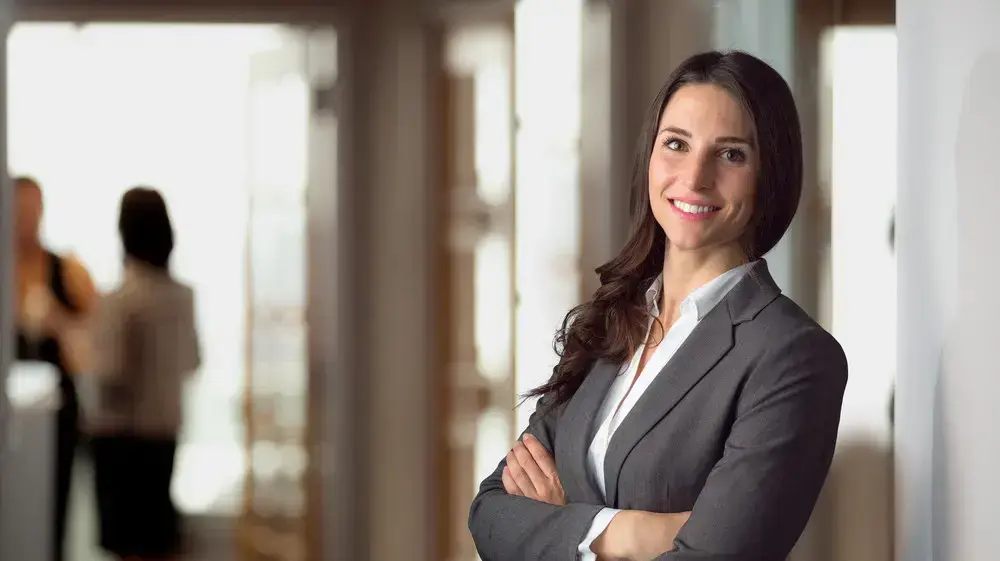
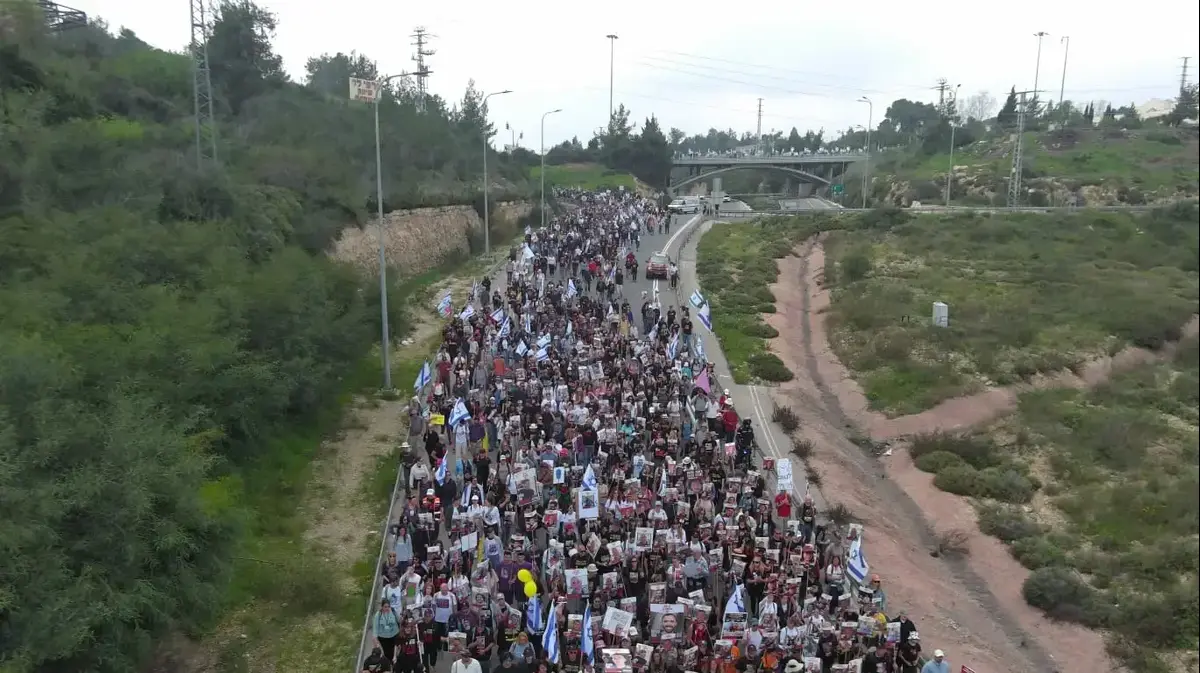


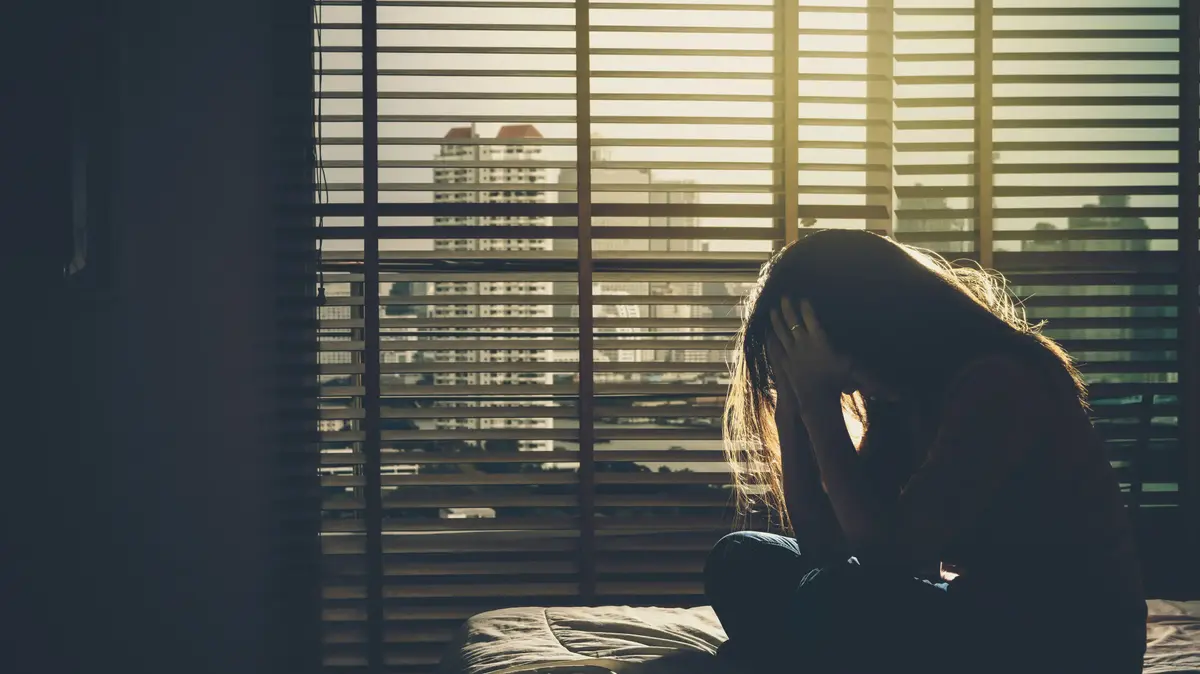
/cloudfront-eu-central-1.images.arcpublishing.com/prisa/YP5IFSHIBSYKN4S6TPUBQE3MIE.jpg)
